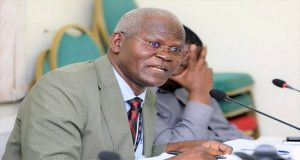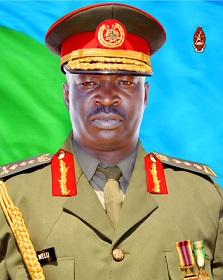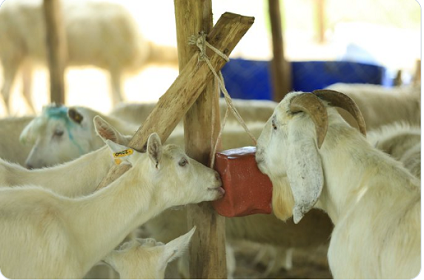
By Sam Mwesigye
In a bid to increase the number and quality of goats to meet local and international demand, the goat project that is being implemented by the government through Ssembeguya Estates Farm has imported male Savannah goats for an additional 47 nucleus breeders.
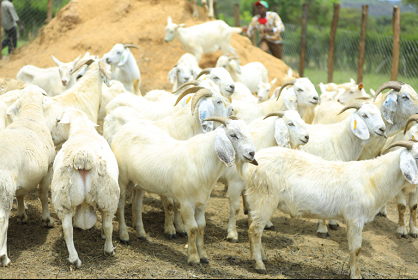
The 47 farmers have received a male Savannah goat each, imported from South Africa for purposes of improving local breeds (F1 and F2). Each farmer will acquire 50 nannies for purposes of cross-breeding with 1 male Savannah goat.
The goat project, which is managed by Dr. Paul Ssembeguya and coordinated centrally at Ssembeguya Estates Farm in Sembabule District, was introduced in 2005 as a presidential initiative with the overall aim of increasing the number of marketable goats to meet local and export demand.

The project was designed with four components, which include conservation of local breeds, improvement of local breeds, promotion of peri-urban farming (mainly through promotion of dairy goat raring), and improving the goat gene pool in Uganda.
While a market-ready mature indigenous goat can fetch between 250,000 and 300,000, the improved breeds of goats can fetch up to a million shillings in the market.
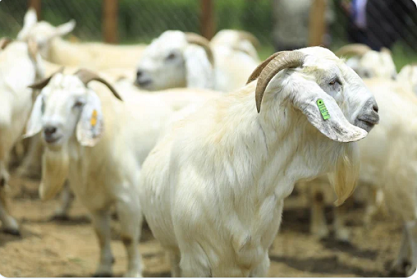
The goat project is promoting commercial farming of dairy goats, mainly in Wakiso district.
With a liter of milk going for 6000 to 8000 shillings, a farmer can earn up to 11 million shillings per year from goat milk alone.
To conserve indegenous breeds, the project will provide 16 nucleus farmers and breeders with 250 indigenous goats each for purposes of multiplication and redistribution to begin with.
As highlighted by Dr. Ssembeguya, the goat project started in 2005 only as a pilot project in Sembabule District.
Currently, the project is being implemented in Sembabule, Wakiso, Nakaseke, Nakasongola, Gomba, Kyankwanzi, and Mubende.

Government support for this project is channeled through the Ministry of Agriculture, Animal Industry, and Fisheries (MAAIF) and State House.
The Ministry was represented by Dr. Stephen Kajura, the coordinator of the Meat Export Support Services Project (MESSP) under the Directorate of Animal Resources.
As emphasized by Dr. Kajura, the goat project feeds into Uganda’s strategy for increasing the quantity of meat exports.

CREDIT: MAAIF (X Handle)




